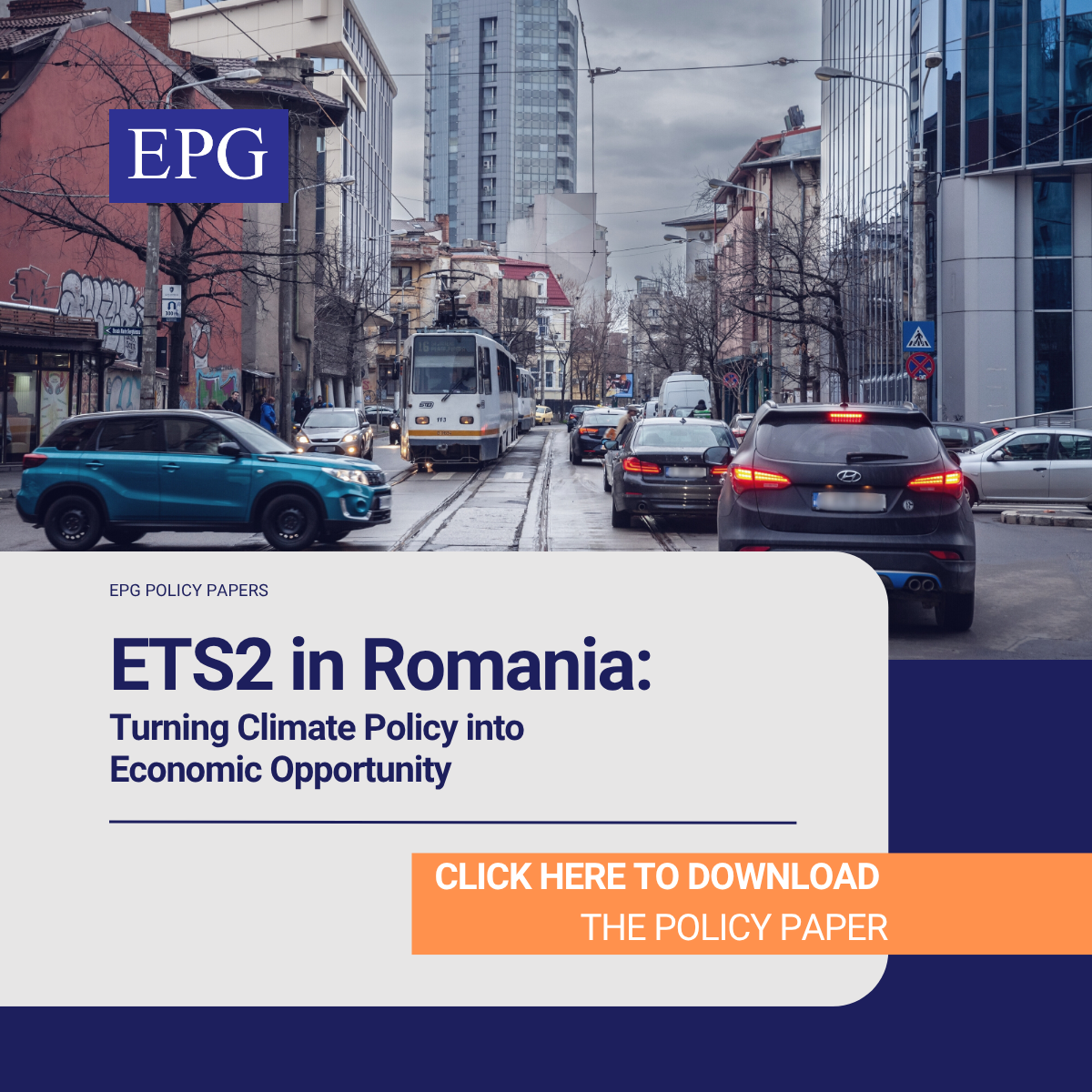The expansion of the EU Emissions Trading System (ETS) through a dedicated system for the buildings and road transport sectors (ETS2) is one of the most impactful and contentious decisions in EU climate policy in recent years. These sectors are major sources of emissions: buildings account for approximately 36% of the EU’s energy-related GHG emissions, while road transport contributes around 20%, with emissions rising in Romania over the past three
decades.
The ETS2 is designed to complement existing regulatory instruments, most notably the Effort Sharing Regulation, which has so far been the main policy setting emissions targets on the transport and building sectors, among others. Under the ETS2, fossil fuel suppliers will be required to purchase emissions allowances, with the overall supply of allowances diminishing progressively over time. This mechanism is intended to introduce a carbon price signal to households and businesses, encouraging a shift towards lower-emission alternatives for heating and transportation.
To address the potential burden on lower-income households, the EU has created a EUR 65 billion Social Climate Fund. The fund would primarily support investments aimed at reducing greenhouse gas emissions from heating systems and road transport, and, to a limited extent, provide direct income support. The ETS2 is expected to have a considerable impact on the short term on vulnerable households, exacerbating fuel poverty, if not addressed in a timely manner. Similarly, certain companies, especially transport service providers and small industrial producers are expected to be impacted, prompting the need for protective measures.
Even though it is a policy of considerable impact on the citizens, no large-scale public information campaigns have yet been organised in Romania. Studies on the domestic impact are also scarce, with only two having discussed the Romanian context so far. The timing is also tight, as the ETS2 is scheduled to be fully operational from 2027. However, during the Environment Council of 4th November, Member States agreed to a postponement of one year, with the new starting date in 2028. The extra time could give governments more room for preparing the implementation and ensuring a smooth start, but may increase costs in the long run.
Romania has transposed the revised directive with a delayed start of the ETS2 in 2031, as per the Government Decision no. 907 from 23 October 2025. This entails serious consequences, such as the potential loss of financial allocations under the Social Climate Fund and foregone ETS2 revenues, delaying crucial investments targeted to the vulnerable households, as well as likely leading to an infringement procedure. As the Just Transition Fund will end in 2027 with no foreseen continuity in the new Multiannual Financial Framework, the Social Climate Fund (SCF) stands as the only available financial instrument to deliver a just transition. At a time of high fiscal deficit, losing an important source of funding and revenue would be a missed opportunity, especially for the transition to cleaner and future-proof heating and transport, but also for stimulating domestic production of low-carbon technologies. The SCF and ETS2 revenues are also one of the only sizeable opportunities to ensure that lower income socio-economic groups can feel the benefits of the transition through improved living conditions and modern, clean and efficient transportation.

Ana-Maria Niculicea, EPG Researcher
Ana-Maria Niculicea is a Researcher at Energy Policy Group, in the Clean Economy Department. She coordinates research activities on climate governance with a focus on enhancing national climate governance and the social acceptance of the transition to a low carbon economy. Additionally, she conducts research on social acceptance of CCUS technologies in the Horizon2020 ConsenCUS project.
She holds a MSc in Politics, Economics and Philosophy from University of Hamburg and a bachelor’s degree in Political Science from National University of Political Studies and Public Administration.
Contact: ana.niculicea@epg-thinktank.org

